Chemistry is the scientific study of the properties and behavior of matter. It is a physical science within the natural sciences that studies the chemical elements that make up matter and compounds made of atoms, molecules and ions: their composition, structure, properties, behavior and the changes they undergo during reactions with other substances. Chemistry also addresses the nature of chemical bonds in chemical compounds.

A chemist is a graduated scientist trained in the study of chemistry, or an officially enrolled student in the field. Chemists study the composition of matter and its properties. Chemists carefully describe the properties they study in terms of quantities, with detail on the level of molecules and their component atoms. Chemists carefully measure substance proportions, chemical reaction rates, and other chemical properties. In Commonwealth English, pharmacists are often called chemists.

The American Chemical Society (ACS) is a scientific society based in the United States that supports scientific inquiry in the field of chemistry. Founded in 1876 at New York University, the ACS currently has more than 155,000 members at all degree levels and in all fields of chemistry, chemical engineering, and related fields. It is one of the world's largest scientific societies by membership. The ACS is a 501(c)(3) non-profit organization and holds a congressional charter under Title 36 of the United States Code. Its headquarters are located in Washington, D.C., and it has a large concentration of staff in Columbus, Ohio.

The Royal Society of Chemistry (RSC) is a learned society and professional association in the United Kingdom with the goal of "advancing the chemical sciences". It was formed in 1980 from the amalgamation of the Chemical Society, the Royal Institute of Chemistry, the Faraday Society, and the Society for Analytical Chemistry with a new Royal Charter and the dual role of learned society and professional body. At its inception, the Society had a combined membership of 34,000 in the UK and a further 8,000 abroad.

Jacqueline K. Barton, is an American chemist. She worked as a professor of chemistry at Hunter College (1980–82), and at Columbia University (1983–89) before joining the California Institute of Technology. In 1997 she became the Arthur and Marian Hanisch Memorial Professor of Chemistry and from 2009 to 2019, the Norman Davidson Leadership Chair of the Division of Chemistry and Chemical Engineering at Caltech. She currently is the John G. Kirkwood and Arthur A. Noyes Professor of Chemistry, Emerita.
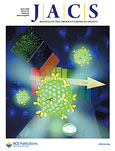
The Journal of the American Chemical Society is a weekly peer-reviewed scientific journal that was established in 1879 by the American Chemical Society. The journal has absorbed two other publications in its history, the Journal of Analytical and Applied Chemistry and the American Chemical Journal. It covers all fields of chemistry. Since 2021, the editor-in-chief is Erick M. Carreira. In 2014, the journal moved to a hybrid open access publishing model.
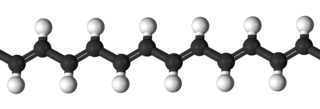
Polymer science or macromolecular science is a subfield of materials science concerned with polymers, primarily synthetic polymers such as plastics and elastomers. The field of polymer science includes researchers in multiple disciplines including chemistry, physics, and engineering.
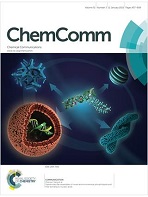
ChemComm, formerly known as Journal of the Chemical Society D: Chemical Communications (1969–1971), Journal of the Chemical Society, Chemical Communications (1972–1995), is a peer-reviewed scientific journal published by the Royal Society of Chemistry. It covers all aspects of chemistry. In January 2012, the journal moved to publishing 100 issues per year. The current chair of the editorial board is Douglas Stephan, while the executive editor is Richard Kelly.
Chartered Chemist (CChem) is a chartered status awarded by the Royal Society of Chemistry (RSC) in the United Kingdom, the Royal Australian Chemical Institute (RACI) in Australia, by the Ministry of Education in Italy, the Institute of Chemistry Ceylon (IChemC), Sri Lanka, and the Institute of Chartered Chemists of Nigeria in Nigeria.

Chemistry education is the study of teaching and learning chemistry. It is one subset of STEM education or discipline-based education research (DBER). Topics in chemistry education include understanding how students learn chemistry and determining the most efficient methods to teach chemistry. There is a constant need to improve chemistry curricula and learning outcomes based on findings of chemistry education research (CER). Chemistry education can be improved by changing teaching methods and providing appropriate training to chemistry instructors, within many modes, including classroom lectures, demonstrations, and laboratory activities.
Tobin Jay Marks is an inorganic chemistry Professor, the Vladimir N. Ipatieff Professor of Catalytic Chemistry, Professor of Material Science and Engineering, Professor of Chemical and Biological Engineering, and Professor of Applied Physics at Northwestern University in Evanston, Illinois. Among the themes of his research are synthetic organo-f-element and early-transition metal organometallic chemistry, polymer chemistry, materials chemistry, homogeneous and heterogeneous catalysis, molecule-based photonic materials, superconductivity, metal-organic chemical vapor deposition, and biological aspects of transition metal chemistry.
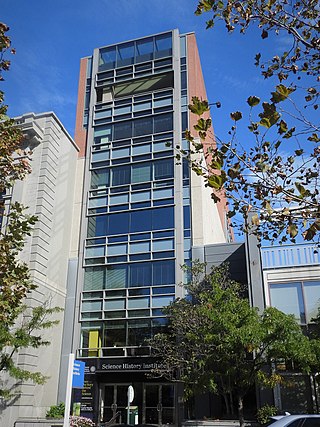
The Science History Institute is an institution that preserves and promotes understanding of the history of science. Located in Philadelphia, Pennsylvania, it includes a library, museum, archive, research center and conference center.

JoAnne Stubbe is an American chemist best known for her work on ribonucleotide reductases, for which she was awarded the National Medal of Science in 2009. In 2017, she retired as a Professor of Chemistry and Biology at the Massachusetts Institute of Technology.

Peter John Stang is an American chemist and Distinguished Professor of chemistry at the University of Utah. He was the editor-in-chief of the Journal of the American Chemical Society from 2002 to 2020.
Samuel Olatunde Emiko Bajah was science teacher and author. He co-wrote Chemistry: A New Certificate Approach with Arthur Godman.
Fellowship of the Royal Society of Chemistry (FRSC) is an award conferred by the Royal Society of Chemistry (RSC) in the United Kingdom.

Chemical Science is a weekly peer-reviewed scientific journal covering all aspects of chemistry. It is the flagship journal of the Royal Society of Chemistry. It was established in July 2010 and is published by the Royal Society of Chemistry; before 2018, it was published monthly. It won the Best New Journal 2011 award from the Association of Learned and Professional Society Publishers. The editor-in-chief is Andrew Ian Cooper.
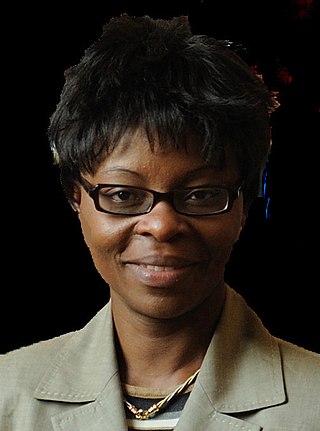
Omowunmi "Wunmi" A. Sadik is a Nigerian professor, chemist, and inventor working at New Jersey Institute of Technology. She has developed microelectrode biosensors for detection of drugs and explosives and is working on the development of technologies for recycling metal ions from waste, for use in environmental and industrial applications. In 2012, Sadik co-founded the non-profit Sustainable Nanotechnology Organization.












